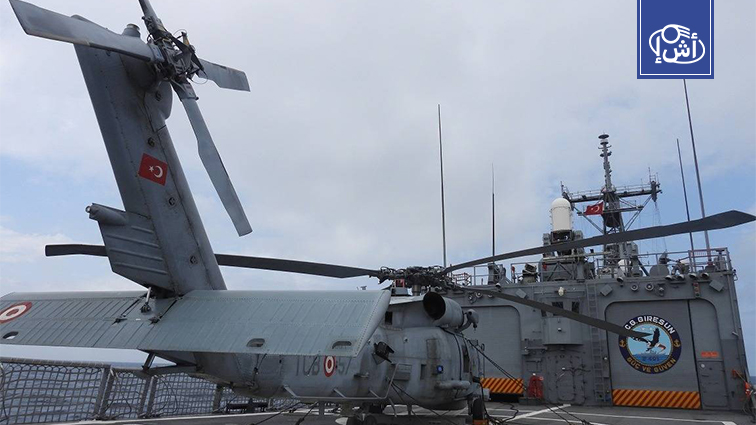The Turkish Navy conducted exercises off the coast of Libya “in accordance with the memorandums of understanding and agreements signed with the former Government of National Accord headed by Fayez al-Sarraj, and the (outgoing) Government of National Unity headed by Abdul Hamid al-Dbeibeh.”
The Turkish Ministry of Defense said that the frigate “TGG Kemal Reis,” participating in an operation by the Turkish Naval Task Group, carried out training on landing and taking off helicopters and firing off the Libyan coast.
There are numbers of Turkish forces at land, sea and air bases in western Libya, according to memorandums of understanding and signed agreements that were not approved by the Libyan House of Representatives.
In early March, Al-Dbeibeh, in his capacity as Minister of Defense, signed a memorandum of understanding in military fields with Turkish Defense Minister Yaşar Guler.
The Turkish army trains Libyan personnel at its training center in Tripoli, in addition to the training it conducts for them in Turkey.
This was preceded, in October 2022, by the Dbeibeh government signing two agreements to enhance security and military cooperation within the framework of implementing the memorandum of understanding signed between Turkish President Recep Tayyip Erdogan and the head of the former Government of National Accord, Fayez al-Sarraj, in Istanbul on November 27, 2019, in the areas of military and security cooperation.
The memorandum of understanding signed with Al-Sarraj is one of two memorandums, as the second relates to defining areas of maritime sovereignty for both Turkey and Libya in the eastern Mediterranean and was followed by the signing of a memorandum of understanding in the field of hydrocarbon resources (oil and natural gas), allowing Turkey to carry out research and exploration activities for oil and gas in The territory of Libya and its coast in the Mediterranean Sea.
The two memoranda raised objections from the Mediterranean countries and Europe, as well as the United States and Russia.
A Tunisian project aims to shorten maritime routes and “enhance the competitiveness of exports”
